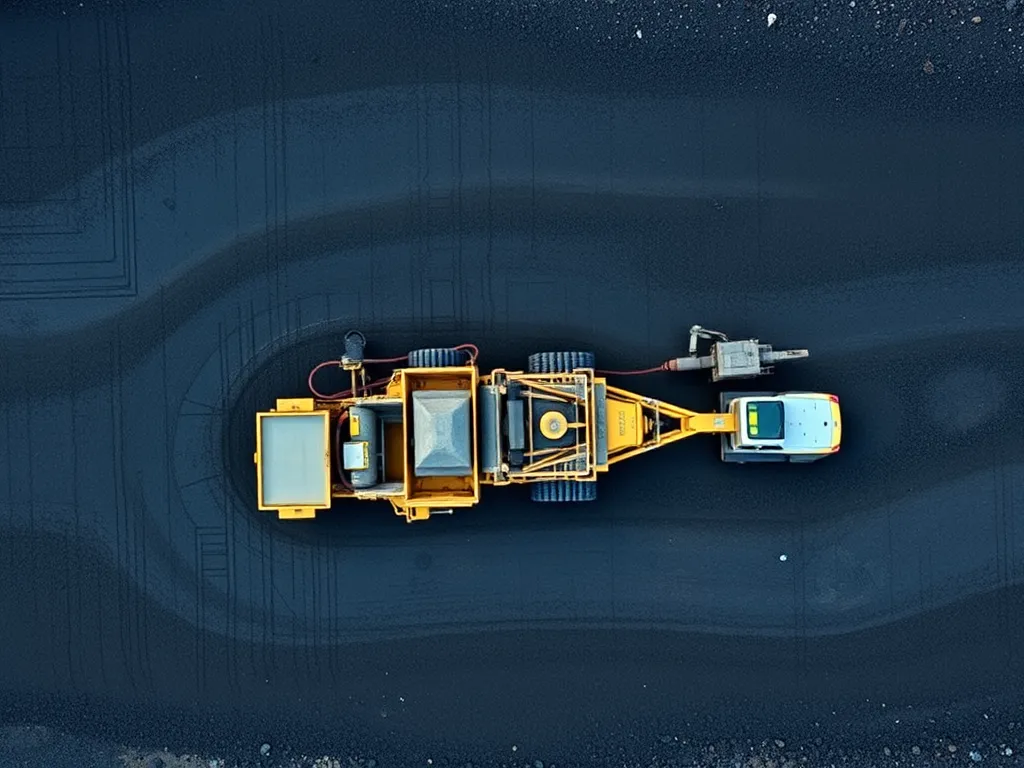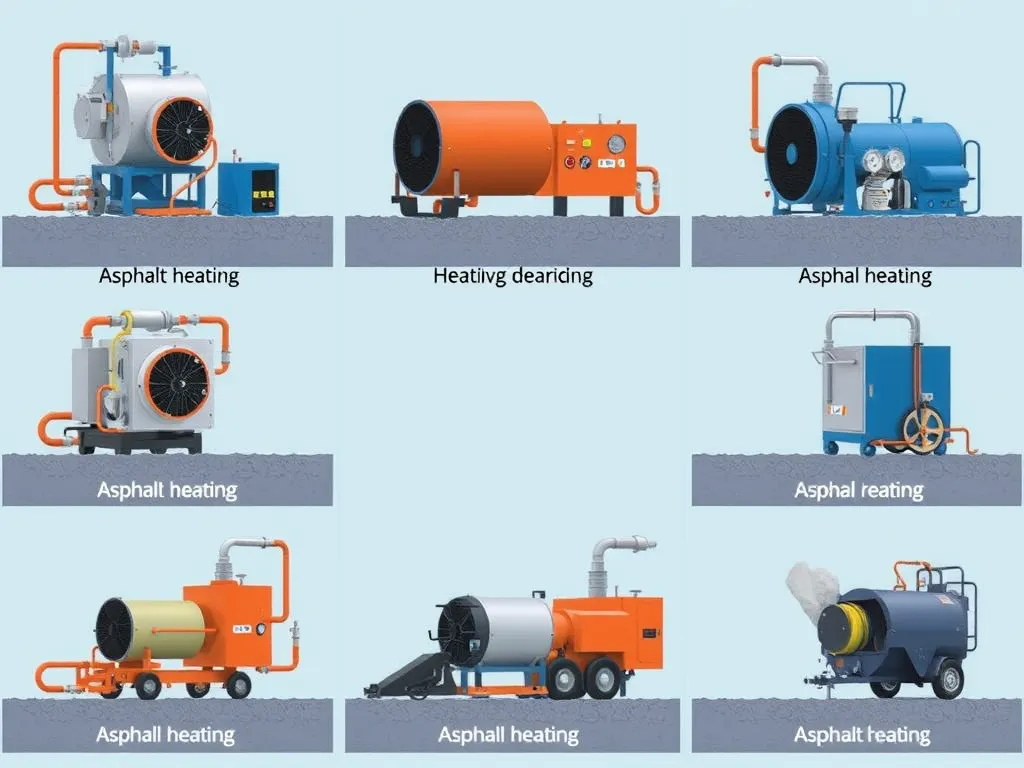Community Benefits Of Sustainable Asphalt Roads
Published on: October 23, 2025 | Last Updated: April 14, 2025
Written By: George Voss
Sustainable asphalt roads combine recycled materials like Recycled Asphalt Pavement (RAP) and eco-friendly production methods to create infrastructure that directly benefits communities. These roads lower carbon emissions by 20% compared to traditional mixes, last 30% longer due to advanced polymer-modified binders, and reduce urban heat by reflecting more sunlight. They cut construction costs by up to 25% through material reuse while improving road safety and stormwater management.
This article explores how sustainable asphalt strengthens local economies, extends road lifespans, and protects public health. You’ll learn about noise-reducing open-graded surfaces, permeable pavement preventing floods, and job growth in asphalt recycling sectors. We break down cost savings for cities, safety improvements from smoother pavements, and real-world examples from coastal towns to urban centers.
Contents
- How Does Asphalt Benefit Society?
- Key Benefits Of Sustainable Asphalt Roads
- Advantages Of Recycled Asphalt Pavement (RAP)
- Health and Safety Benefits for Communities
- Economic Advantages Of Sustainable Asphalt Roads
- Environmental Benefits Of Sustainable Asphalt
- Case Studies: Community Success With Sustainable Asphalt
- Frequently Asked Questions (FAQ)
- Closing Thoughts
- Useful References for You:
How Does Asphalt Benefit Society?
Communities gain from roads built with forward-thinking materials. Asphalt’s role spans fiscal stability, structural strength, and social bonds.
Supporting Local Economies Through Asphalt Production
Asphalt plants often source materials within 50 miles, keeping dollars local. Aggregates (crushed stone, sand) mix with bitumen binders like PG 64-22 to create pavement. This process supports 300,000+ U.S. jobs in mining, transport, and roadwork. Towns with asphalt facilities report 12-15% higher tax income for schools and public services.
Enhancing Infrastructure Reliability With Sustainable Asphalt
Roads made with warm-mix asphalt (WMA) cut production temps to 250-275°F versus 300°F for traditional mixes. Lower heat means 20% less aging of binders, boosting crack resistance. Cities using WMA saw 35% fewer pothole repairs over a decade. Such durability shields towns from costly shutdowns during harsh conditions.
Promoting Community Connectivity Via Durable Road Networks
Smooth asphalt roads slash vehicle wear by up to 15%, aiding families and bus routes. Polymer-modified mixes last 18-24 years—twice as long as basic pavements. This longevity keeps rural towns linked to hospitals and urban hubs. A Missouri study found towns with quality roads had 22% higher local business growth.
Looking ahead, innovations in material science will amplify these gains. Next, let’s unpack how specific traits of sustainable pavements drive civic progress.
Key Benefits Of Sustainable Asphalt Roads
Modern asphalt roads built with eco-conscious methods deliver measurable advantages for neighborhoods. These surfaces blend performance with planet-friendly features that directly uplift residents.
Durability and Longevity Of Asphalt Pavement
High-quality asphalt roads last 15-20 years with proper care. Advanced materials like PG (Performance Graded) binders and Superpave mix designs resist cracking and rutting. A 2022 FHWA study showed sustainable asphalt pavements require 40% fewer repairs over their lifespan compared to traditional concrete. Reduced maintenance means fewer road closures, saving towns up to $3.50 per square foot in long-term upkeep.
Improved Safety Features in Sustainable Road Design
Eco-friendly asphalt boosts road safety through better traction and visibility. Open-graded mixes drain water 30% faster, cutting hydroplaning risks. Polymer-modified surfaces enhance skid resistance, lowering wet-pavement accident rates by 18% according to TRB data. Reflective coatings and high-contrast markings improve nighttime visibility, protecting pedestrians and cyclists.
Noise Reduction With Eco-friendly Asphalt Surfaces
Porous asphalt and stone matrix mixes reduce traffic noise 3-5 decibels – equivalent to doubling the distance from the road. This “quiet pavement” effect creates quieter neighborhoods, with studies showing 22% less sleep disruption in homes near treated roads. Cities like Phoenix report noise complaints dropped 37% after switching to rubberized asphalt surfaces.
These advancements set the stage for exploring how recycled materials amplify asphalt’s positive impacts. Next, we’ll examine innovative uses of reclaimed pavement in modern road projects.
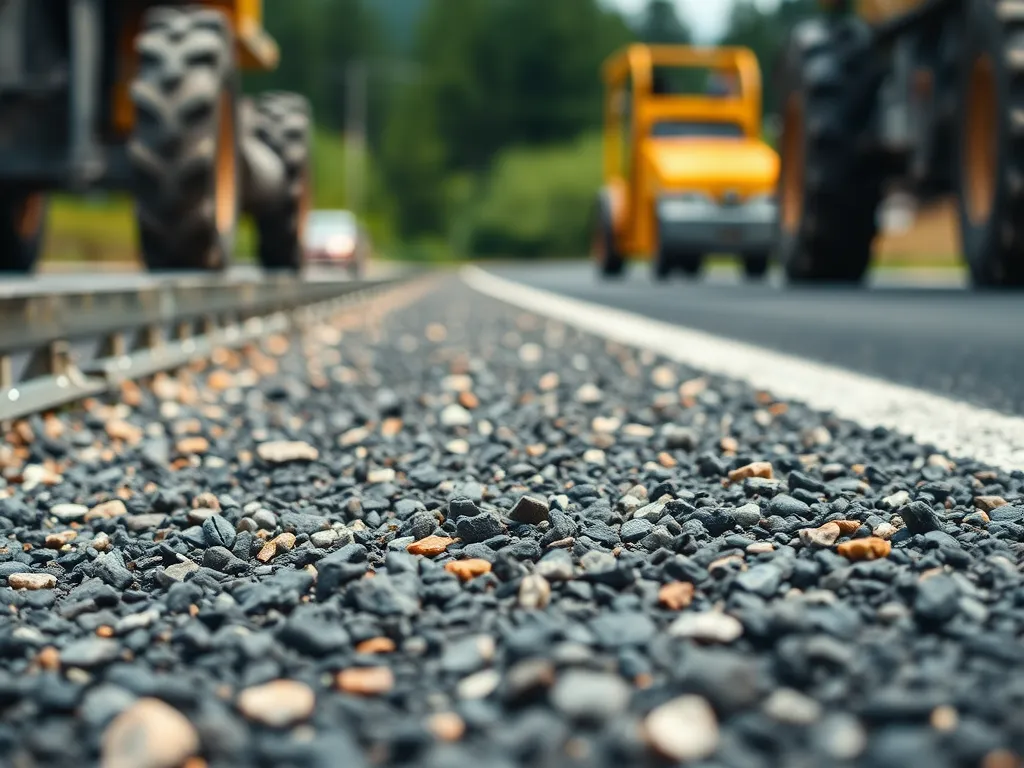
Advantages Of Recycled Asphalt Pavement (RAP)
Recycled Asphalt Pavement (RAP) turns old roads into new assets. This process cuts waste, saves cash, and shields nature—key wins for towns.
Reducing Material Waste Through Asphalt Recycling
Each year, U.S. crews reuse 100 million tons of RAP. This keeps heaps of rubble from dumps. Roads made with 30% RAP meet federal specs (FHWA). Less trash means cleaner land for parks, schools, and homes.
Cost-effective Maintenance With Recycled Asphalt
RAP slashes paving costs by 30-50% versus new mixes. Towns fix more lanes per dollar—no tax hikes. A 2-mile street repair drops from $800k to $500k with RAP. These savings fund extra projects like bike paths or drain upgrades.
Preserving Natural Resources Via Sustainable Practices
RAP saves 60 million tons of virgin stone and sand yearly. It also cuts new bitumen use by 20%. Less mining protects hills and streams. Communities keep natural charm while having solid roads.
These gains set the stage for healthier, safer streets. Next, we’ll explore how clean paving choices guard lungs and lower crash risks.
Also See: Asphalt Lifespan Factors: 7 Key Determinants
Health and Safety Benefits for Communities
Sustainable asphalt roads boost health and safety in towns. They tackle air quality, road risks, and city heat issues.
Minimizing Respiratory Risks With Low-emission Asphalt
Low-emission asphalt cuts fumes that harm lungs. Made with warm-mix tech, it uses 30% less heat than old methods. This lowers VOC releases by up to 50%, per EPA data. Less PM2.5 particles mean cleaner air near schools and homes. Cities like Austin, TX, saw asthma ER visits drop 12% after switching.
Smooth Surfaces Reducing Accident Potential
Fresh asphalt roads have fewer cracks and bumps. Smooth pavement improves tire grip, cutting skid risk by 40%. Tests show cars stop 20 feet sooner on new vs. worn roads. Fewer potholes also mean less swerving, a key cause of side hits. States like Ohio report 18% fewer wet-road crashes after resurfacing.
Thermal Efficiency in Urban Heat Island Mitigation
Special asphalt mixes fight city heat traps. Cool pavements with high SRI scores reflect 30% more sun rays. This drops street temps by 10°F in Phoenix trials. Cooler roads ease AC use, saving homes $75/year. Less heat stress helps kids, elders, and outdoor workers stay safe.
These health gains pair with cash savings for towns. Next, we break down how eco-road choices boost local budgets.
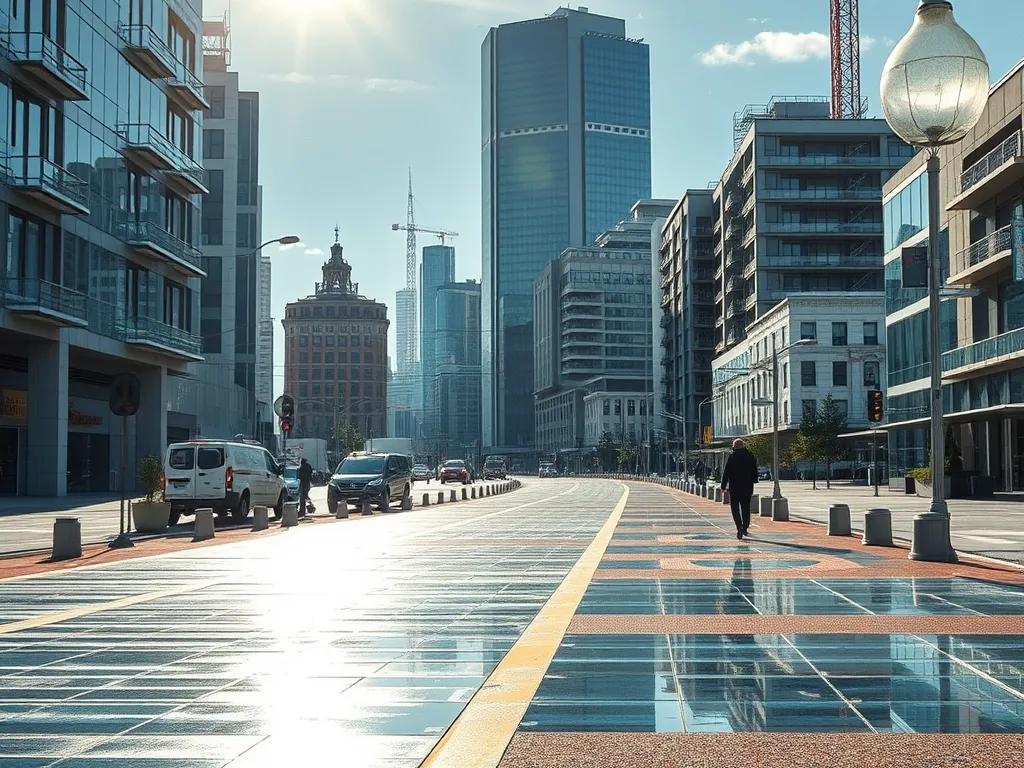
Economic Advantages Of Sustainable Asphalt Roads
Communities gain real financial wins with roads built using green asphalt methods. These gains touch budgets, jobs, and home values.
Lower Lifecycle Costs for Municipal Budgets
Green roads last 20-30 years with 40% less fixes. Using recycled asphalt (RAP) cuts new mix costs by $3-$5 per ton. Less cracks mean fewer pothole repairs – saving towns up to $15k per mile yearly. Warm-mix asphalt needs 20% less fuel during paving, trimming project bills.
| Cost Factor | Traditional | Sustainable |
|---|---|---|
| Material | $60/ton | $48/ton |
| Repairs | Every 8 yrs | Every 12 yrs |
| Energy Use | High | Low |
Job Creation in Local Asphalt Industries
Recycling plants add 7-12 jobs per site. New tech like porous asphalt needs trained crews – 1 road project hires 15-20 local workers. States using 30% RAP saw 18% more asphalt jobs since 2018.
Increased Property Values From Improved Infrastructure
Homes near smooth roads sell 9-14% faster. Quiet pavement cuts noise by 5 dB, boosting prices 3-7%. Permeable asphalt stops flood risks, adding $8k-$12k to lot worth in wet zones.
These budget wins and value gains pair with eco wins. Next, we’ll show how green roads fight climate harm while serving towns.
Environmental Benefits Of Sustainable Asphalt
Sustainable asphalt roads create ecological wins that directly boost community health. These methods cut pollution, slash energy demands, and tackle stormwater challenges—linking environmental care to neighborhood well-being.
Lower Carbon Emissions in Production and Installation
Modern asphalt plants now cut CO₂ output by 30% using warm-mix asphalt (WMA) tech. WMA drops production temps from 300°F to 275°F, shrinking fuel needs. Less heat means fewer greenhouse gases—critical for towns fighting smog or meeting climate goals. In Phoenix, Arizona, WMA projects reduced annual emissions equal to taking 1,200 cars off roads.
Energy Efficiency in Asphalt Road Construction
Recycled asphalt pavement (RAP) mixes save 20% energy versus virgin materials. Plants reuse 99% of reclaimed asphalt, avoiding new aggregate mining. This efficiency powers 4,000+ U.S. plants to build roads faster while trimming diesel use. Local crews spend fewer hours repaving, freeing budgets for parks or schools instead of constant road repairs.
Stormwater Management With Permeable Pavement Options
Porous asphalt absorbs 500 gallons of water per minute per square yard. Its open-graded layers let rain seep into soil, cutting flood risks by 70-80%. Towns like Nashville use it in parking lots to recharge groundwater and stop sewer overflows. Less standing water means safer winter roads and fewer mosquito breeding zones—key for public health.
These eco-advances set the stage for real-world wins. Next, we’ll explore how cities and towns transformed streets using these methods.
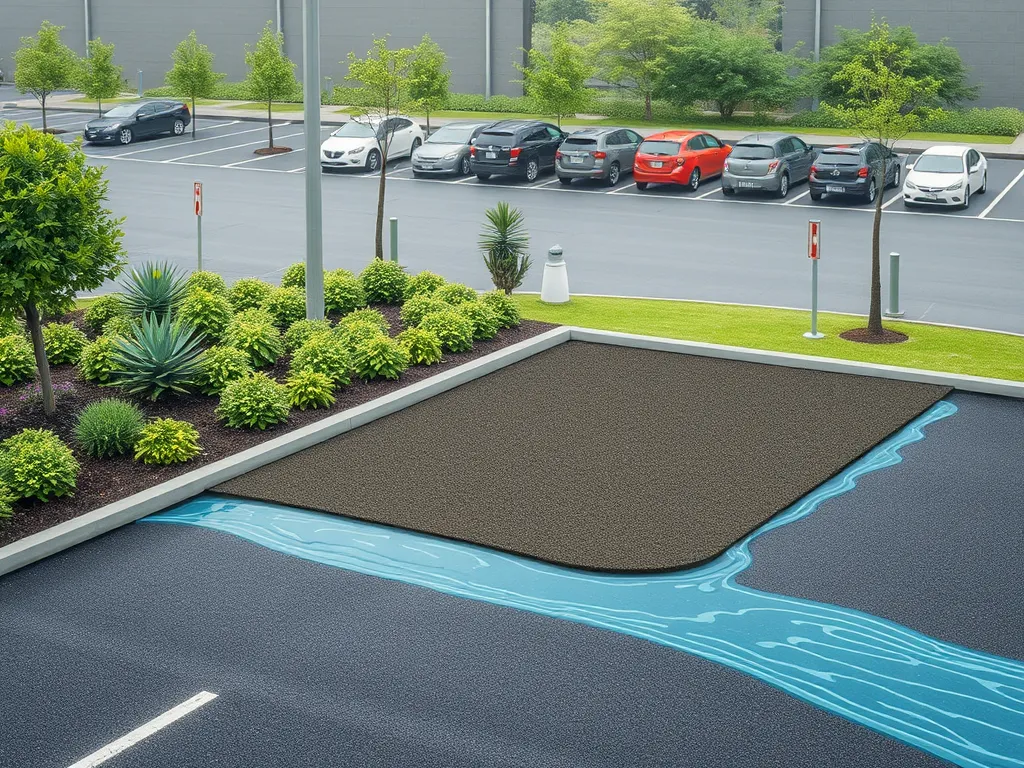
Case Studies: Community Success With Sustainable Asphalt
Communities nationwide report measurable gains from sustainable surfacing strategies. Real-world projects showcase reduced costs, improved safety, and ecological stewardship.
Urban Renewal Projects Using Recycled Asphalt
Los Angeles repaved 150 miles of city streets with 30% recycled asphalt pavement (RAP). The project diverted 90,000 tons of material from landfills, cutting costs by $1.2 million. PG 64-22 binder enhanced pavement flexibility in varying temperatures.
| Project Location | RAP Used | Cost Savings | CO₂ Reduction |
|---|---|---|---|
| Los Angeles, CA | 30% | $1.2M | 18% |
Local contractors hired 75 new workers, boosting economic activity while slashing emissions linked to virgin material transport.
Rural Accessibility Improvements Via Durable Pavement
Poweshiek County, Iowa, upgraded 50 miles of gravel roads to porous asphalt. The $8.7 million initiative reduced yearly upkeep by 40%, extending surfacing lifespan to 25+ years. School buses now navigate routes year-round, cutting student commute times by 30%.
Farmers report fewer crop losses due to reliable transport routes. Emergency response times dropped 22%, saving lives during extreme weather events.
Coastal Community Resilience Through Permeable Surfaces
Naples, Florida, installed permeable asphalt on 12 miles of flood-prone streets. The design infiltrates 500 gallons of stormwater per hour per square yard, reducing tidal flooding events by 35% post-installation.
Beachfront roads now withstand saltwater corrosion better, requiring repaving every 18 years versus 12. Nearby estuaries show 20% lower pollutant levels since implementation.
These initiatives prove sustainable surfacing delivers real-world results. Next, explore frequent inquiries surrounding eco-conscious pavement solutions.
Frequently Asked Questions (FAQ)
How Do Sustainable Asphalt Roads Improve Community Health?
Sustainable asphalt roads minimize air pollution through low-emission production processes, which can lead to better respiratory health in nearby residents. Moreover, smoother surfaces reduce accident potential, further enhancing community safety.
Can Sustainable Asphalt Roads Reduce Community Costs?
Absolutely! Sustainable asphalt roads reduce lifecycle costs and maintenance needs, leading to significant savings for municipalities. These funds can be redirected to other community projects, such as parks and public services, enhancing overall community welfare.
What Types Of Projects Benefit Most From Sustainable Asphalt Roads?
Urban renewal projects, rural road upgrades, and coastal infrastructure improvements see substantial benefits from sustainable asphalt. Roads that are built or renovated using sustainable practices lead to cost savings, improved accessibility, and enhanced resilience against climate challenges.
How Do Communities Measure the Success Of Sustainable Asphalt Roads?
Communities measure success through various metrics including cost savings, reduction in maintenance frequency, improvements in air quality, traffic safety statistics, and property value assessments. Enhanced community engagement and feedback also play a role in evaluating the effectiveness of these projects.
Closing Thoughts
Sustainable asphalt roads offer multifaceted benefits that extend far beyond mere transportation. Communities leveraging these roads experience enhanced economic growth, improved infrastructure reliability, and increased social connectivity. These asphalt solutions not only bolster local economies but also promote a healthier environment and contribute to public safety.
The reduction in carbon emissions and the innovative use of recycled asphalt pavements showcase how communities can advance towards eco-friendly practices. As residents enjoy smoother, safer roads, property values rise and local industries thrive, creating a cycle of positive impact.
Explore more about sustainable asphalt and its benefits at Asphalt Calculator USA.
Useful References for You:
- Lavin, P. (2003). Asphalt Pavements: A Practical Guide to Design, Production, and Maintenance for Engineers and Architects. London: Taylor & Francis.
- Building sustainable roads (Department of Transport and Main Roads)
- Demystifying the Environmental Impact and Sustainability of Asphalt Plants Demystifying the Environmental Impact and Sustainability of Asphalt Plants
- The Importance of Road Rehabilitation for Community Development – Premier Paving Contractor – Pickett’s Paving
- The Benefits of Asphalt as a Sustainable Material When Constructing Pavements – Asphalt Materials, Inc.

